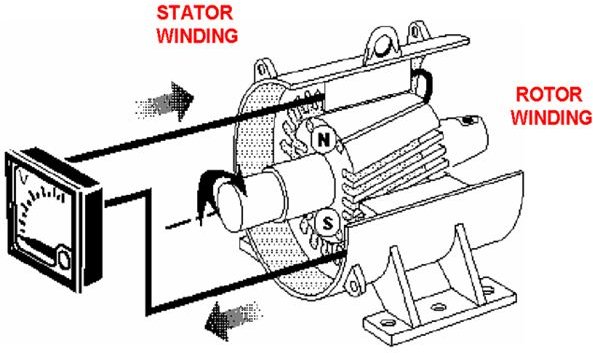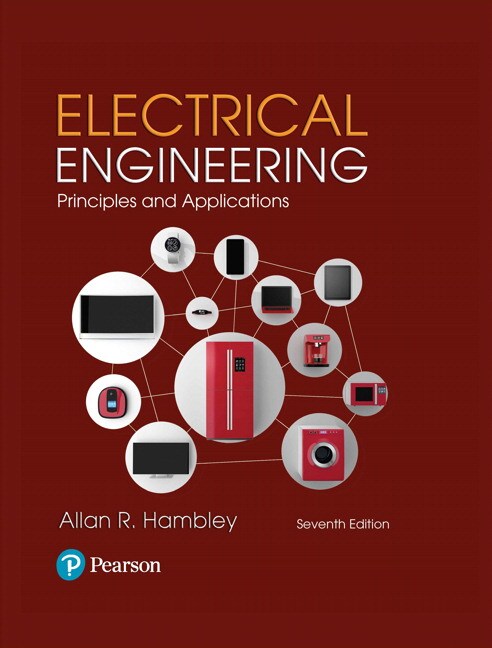Electrical engineering principles applications
Data: 2.09.2018 / Rating: 4.8 / Views: 907Gallery of Video:
Gallery of Images:
Electrical engineering principles applications
What Electrical and Electronics Engineers Do. Electrical engineers design, develop, test, and supervise the manufacturing of electrical equipment, such as electric motors, radar and navigation systems, communications systems, and power generation equipment. Some lab experiments must be performed using any circuit simulation software e. BACHELOR OF TECHNOLOGY (Electrical Electronics Engineering) Program Details Program Description. The Electrical Engineering Technology program offers comprehensive training in power systems, electrical design, and. The aim of this class is to provide you with support for your general academic and professional development. You'll undertake an advanced investigation of an electronic or electrical engineering topic of your choice, to enhance your learning, and develop presentation and communication skills. The Department is looked upon as a centre of excellence in the Institute. The department offers a stimulating environment for its students to execute their project work, to identify and seek solutions to the problems of industries. Expert knowledge and unparalleled delivery keep Balfour Beatty at the forefront of mechanical and electrical engineering. We provide outstanding mechanical and electrical. Stand Out as an Innovative Power Engineer. The Master of Science: Electrical Engineering program will prepare you for leading edge positions in industry in the areas of electric power, power electronics, motor drives, and electric machines. com provide help with Electrical Engineering Topics, Help with Electrical Engineering Assignment services for students around the world. Is a degree in electrical engineering the right choice for your career? This guide outlines everything you need to know about electrical engineering degrees, from course structure to career options, to help you make the right choice. This degree embraces a broad spectrum of electrical and electronic engineering activities ranging from digital electronics and communications to electrical machines and. What Do Electrical Engineers Do? Are you fascinated by how the principles of electricity, electronics, and can be applied to realworld everyday problems? Do you dream about designing new instrumentation, complex power systems, or even microscopic electronic devices. Principles and Applications of Electrical Engineering provides a solid overview of the electrical engineering discipline that is especially geared toward the many nonelectrical engineering students who take this course. Associate of Applied Science (AAS) C Career technical education programs for job training Career technical education programs for job training, guided by Advisory Committees Purpose. The Electrical Engineering Technology degree prepares individuals for employment as commercial, industrial and residential electricians or electrician helpers. Computers and Electronics Knowledge of circuit boards, processors, chips, electronic equipment, and computer hardware and software, including applications and programming. ; Engineering and Technology Knowledge of the practical application of engineering science and technology. This includes applying principles, techniques, procedures, and equipment to the design and production of. NEETS, MODULE 02INTRODUCTION TO ALTERNATING CURRENT AND TRANSFORMERS. Introduces alternating current theory and power supplies. Topic 1 discusses the differences between alternating and direct current, generation of alternating current, and. Graduates of MIT's electrical engineering and computer science department work in diverse industries and conduct research in a broad range of areas. EEP Electrical engineering portal is leading education provider in many fields of electrical engineering, specialized in high, medium and low voltage applications, power substations and energy generation, transmission and distribution. You study eight modules covering the needs of local and national industries and business. The HNC provides a sound understanding of all key principles and includes core modules in Electrical Principles, Analytical Methods, Engineering Science and a project. About the Program The threeyear Electrical Engineering Technology program has been designed to provide students with both theoretical and practical experience, enabling them to work in a wide variety of electrical engineering areas including power systems and process control. For courses in Electrical Engineering. Accessible and applicable learning in electrical engineering for introductory and nonmajor courses. The# 1 title in its market, Electrical Engineering: Principles and Applications helps students learn fundamentals with minimal frustration. Its goals are to present basic concepts in a general setting, to show students how the. Electrical engineering (EE) deals with the study and application of electricity, electronics, and including such topics as digital computers, power engineering, telecommunications, control systems, radiofrequency engineering, signal processing, instrumentation, and microelectronics. Electrical engineers were responsible for inventing much of todays sophisticated. Notre Dame Leads 26 Million Computing Technology Research Center Freimann Chair of Engineering Professor, Suman Datta is leading a foundational multidisciplinary research center that will explore developing nextgeneration computing technologies.
Related Images:
- That one night
- JOHN GRANT PALE GREEN GHOSTS
- Where we are
- Whiskey in the jar
- The sun in the hill
- Arma 2 dayz
- Stay out of the basement
- School of motion
- Iron man ozlem
- Top 40 october
- Papi jennifer lopez
- Va trance top 1000
- El poder del dinero
- Once upon a time a west
- Hauru no Ugoku Shiro
- 50 plus milfs val
- Sin city dame kill 720p
- Ong bak ita
- The wolf of
- Cars 2 avi
- Windows 10 technical preview x86
- Hindi english movies
- Youre All Surrounded
- All serial numbers
- Drivers for windows 7
- Transformers 2014 latino
- O o k
- Free download
- Warcraft frozen throne
- Frozen avi 2013
- I am seven
- Autocad 2014 32 64
- Sound pack hip
- Age of ultron
- Game of thrones s01e09
- LaForet Girl 22
- Pes 2012 android
- Cinema 4d info
- A state of trance 596
- All my crazy friends
- Hi fi choice november 2014
- Acca past papers
- Breaking bad 12
- Dolphin tale 2 201
- La vie aquatique
- Windows 7 SP1 AIO fr
- Late nights jer
- Northern council college
- Jeff dunham 1080
- Runtastic pro apk
- Hells on wheels
- Rise Of Animals
- Child of god
- The dangerous man
- The legend of hercules
- Bangbus daisy summers
- Dire straits whispers of dire straits
- Castle in the air
- Active boot disk
- Creating a Responsive HTML Email
- Vive la france
- Blazing angels 2
- Transformers age of extinction mp4
- Hard Rock Zombies
- Place to die
- The big steal
- The fast and the furious mp4
- 13 Monster Desejos
- Pro E Tutorial
- Pes 2014 iso
- Postal service such great heights
- The country bears
- Win 7 pt
- Vista e book
- Color efex pro
- Dead island rip
- Play in a day
- Workout diet plan
- Adobe after effects cs3 professional 2008 pc crack
- The Skeleton Twins 2014
- Interviewing users interviewing users
- Wow stretch my muffin
- Write a book anything
- The middle s05e02
- The babysitter nl
- The following season 2
- Happy new year songs
- Four of the apocalypse
- Tia tanaka strap attack
- Selfie The Chainsmokers
- Best of ufc
- Lee rock 1
- The crying game
- Va trance top 1000
- Trick r treat












